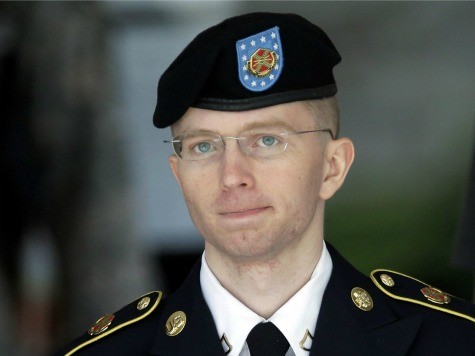AP) Soldier’s defense team rests in WikiLeaks trial
By DAVID DISHNEAU
Associated Press
FORT MEADE, Md.
The defense has rested its case in the court-martial of Pfc. Bradley Manning, who leaked loads of classified information to the website WikiLeaks.
Lawyers for the soldier rested their case Wednesday. Manning is contesting 21 charges, including aiding the enemy, which carries a possible life sentence.
He has acknowledged giving the anti-secrecy group hundreds of thousands of battlefield reports and State Department cables while working as an intelligence analyst in Iraq. He says he wanted to expose wrongdoing.
Prosecutors say he knew the material would be seen online by al-Qaida.
Prosecutors say they will call rebuttal witnesses on Monday, when the trial reconvenes.
THIS IS A BREAKING NEWS UPDATE. Check back soon for further information. AP’s earlier story is below.
An Army private’s leak of classified information to WikiLeaks changed how the public, the government and traditional news media perceived the anti-secrecy organization _ from a legitimate journalistic enterprise to a group that supported terrorism, a Harvard law professor testified Wednesday.
Pfc. Bradley Manning’s lawyers called Yochai Benkler to testify about the government’s response to WikiLeaks’ publication of Iraq and Afghanistan battlefield reports, State Department diplomatic cables and battlefield video that Manning has acknowledged sending to the anti-secrecy group.
Before that material was published, starting in April 2010, major newspapers and even a Pentagon report generally portrayed WikiLeaks as a new kind of journalistic organization, Benkler said.
But after WikiLeaks began publishing the hundreds of thousands of battlefield reports Manning leaked, that perception changed substantially, he said.
After WikiLeaks began publishing more than 250,000 leaked State Department cables in late November 2010, “the response is hard to define as anything but shrill,” Benkler said. He cited Vice President Joe Biden’s comment in a Dec. 19, 2010, appearance on NBC’s “Meet the Press” that, “I would argue it is closer to being a hi-tech terrorist than the Pentagon papers.”
Defense attorney David Coombs told the military judge he called Benkler to testify about “how a journalistic organization changed from being a legitimate journalistic organization to being a terrorist organization based on the response of the government.”
Manning is charged with aiding the enemy, which carries a possible life sentence, for admittedly sending reams of classified information to WikiLeaks while working as an intelligence analyst in Iraq in late 2009 and early 2010. Prosecutors say he knew the material would be seen by the terrorist group al-Qaida on the WikiLeaks website. They produced evidence that al-Qaida leader Osama bin Laden obtained digital copies of some of the leaked documents.
Coombs told Manning’s courtroom supporters on Tuesday evening that Benkler’s testimony would likely conclude the defense case, said Jeff Paterson, a board member of the Bradley Manning Support Network.
Coombs made no mention of calling Manning to the stand, Paterson said in a telephone interview Wednesday.
Benkler would be the ninth live witness in just three days of defense testimony. Prosecutors presented live testimony or written statements from 80 witnesses in 14 days. The trial began June 3 at Fort Meade near Baltimore.
The defense had proposed calling more than 20 witnesses, but Coombs told supporters he would not need them all to counter the prosecution’s arguments, Paterson said.
Benkler has praised WikiLeaks as a new kind of journalistic enterprise. He wrote in a 2011 International Journal of Communications article that the prosecution of Manning is part of a broader, uncoordinated attack on WikiLeaks aimed at crippling the anti-secrecy group.
Manning, a 25-year-old native of Crescent, Okla., has acknowledged giving the anti-secrecy group hundreds of thousands of Iraq and Afghanistan battlefield reports and State Department diplomatic cables, along with battlefield videos and other documents he downloaded from a classified government computer network. Manning has said he leaked the material to provoke public discussion about what he considered wrongdoing by American troops and diplomats. The material included video of a 2007 U.S. Apache helicopter attack in Baghdad that killed 11 men, including a Reuters news photographer and his driver. A military investigation concluded the troops reasonably mistook the photography equipment for weapons.
Defense Rests in Court-Martial of Bradley Manning

COMMENTS
Please let us know if you're having issues with commenting.